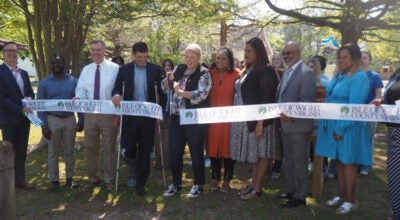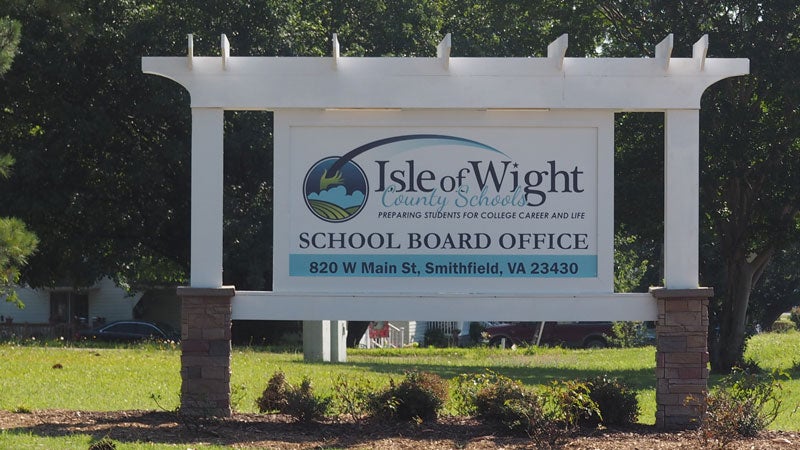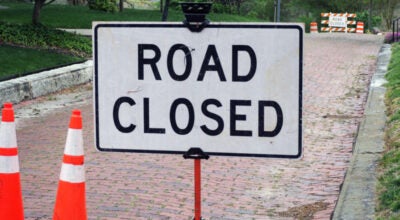Surry broadband partnership enters next phase
Published 10:59 pm Tuesday, July 21, 2020
By next summer, any resident of Surry County who wants access to broadband should be able to sign up.
The expanded access to high speed internet is through a partnership between Dominion Energy and Ruralband, a subsidiary of Prince George Electric Cooperative, and it also has the county’s support. The partnership was announced in February.
The agreement will provide broadband to about 4,500 Dominion customers and 2,200 PGEC customers. It’s the first time in Virginia such an arrangement has been implemented to expand broadband, according to an announcement from Dominion.
In the last few months, the coronavirus pandemic accelerated the importance of equity in digital access as work and education, along with even more aspects of social life and entertainment, moved almost completely online for many people, including Surry’s approximately 7,000 residents.
High speed internet is “a fourth utility. It’s just as essential as water and sewer,” said Surry County Administrator Melissa Rollins. Expanding broadband access “has been one of the county’s No. 1 priorities for a number of years and the fact that we’re working with PGEC, who is working with Dominion to make this a reality for Surry, is quite an accomplishment.”
Rollins said expanded broadband is advantageous to students and for economic development.
“Home-based businesses will certainly benefit from having broadband in the county,” she said. “That’s why it’s so important that people understand the project and that in order to have it, you have to be willing to sign up for the service when it is made available,” Rollins said.
Under the agreement, Dominion serves as the “middle mile” provider, allowing PGEC to lease its fiber optic infrastructure, which it is installing to support its own electric grid. Ruralband, in turn, serves as the internet service provider, the entity responsible for the “last mile” of infrastructure that delivers the service to homes and businesses. As the middle mile provider, Dominion will not directly connect customers to the internet.
The partnership is possible following General Assembly approval of legislation that supports utility regulation, infrastructure modernization and investment. Dominion plans to file the first round of projects, including the Surry project, for approval with the State Corporation Commission later this year, according to spokeswoman Samantha Moore.
When it comes to expanding broadband, “I think partnerships just make sense,” said Ed Diggs, Dominion’s Rural Broadband Program manager. “It would just cost too much for one entity — whether it be an internet service provider or obviously a utility or a local jurisdiction — to believe they can do it all on their own. I think it takes a multi-entity partnership and sharing of those costs to really make it so it’s a viable business opportunity,” Diggs said.
On the Surry project, Dominion is in the early phases of design and easement acquisition, involving a detailed assessment of the existing infrastructure in coordination with Ruralband.
“They’re kind of letting us know where they’d like to have key access points so that they can connect customers,” Diggs said. “Right now, we’re kind of going through the grind of actually putting pen to paper and doing the detailed design. That’s almost finished. I would say within the next couple weeks, that’ll be completed.”
The Surry project, he said, is an example of the approach necessary to expand internet access. Without this type of cooperation, “the economics would just never work out because it’s really expensive and sometimes the customer density is just not there,” said Diggs, who is leading Dominion’s statewide work on the rural broadband initiative.
“With the relationship with Dominion and us leasing the fiber for the project, it’s going to take a significant amount of time off the original plan to fully make broadband available to Surry County residents,” said Renee Chapline, a PGEC spokeswoman. She characterized the partnership as “very beneficial” for all involved.”
Surry received a $2.25 million grant, part of $18.3 million in funding awarded to broadband projects statewide through the Virginia Telecommunications Initiative, a state program that provides funding to extend broadband to unserved communities.
Ruralband’s entry-level residential 25 megabits per second internet service starts at $49 per month. For $139 per month, 1 Gig service is available. Ruralband’s website describes the 1 Gig service as professional level, suitable for working from home, multi-device streaming in high definition and online gaming.
Right now, broadband is available to the county’s Beechland and Spring Grove areas, and access is continuing to expand as “currently we are in the air, trenching in the ground” and continuing to make broadband available throughout Surry, Chapline said.
Chapline previously worked for another organization in economic development. In that capacity, she saw the importance of broadband access firsthand. No longer is high speed internet a luxury service. Instead, it’s “an essential part of daily life, really (necessary) to survive in any community, whether it’s rural or urban.”





